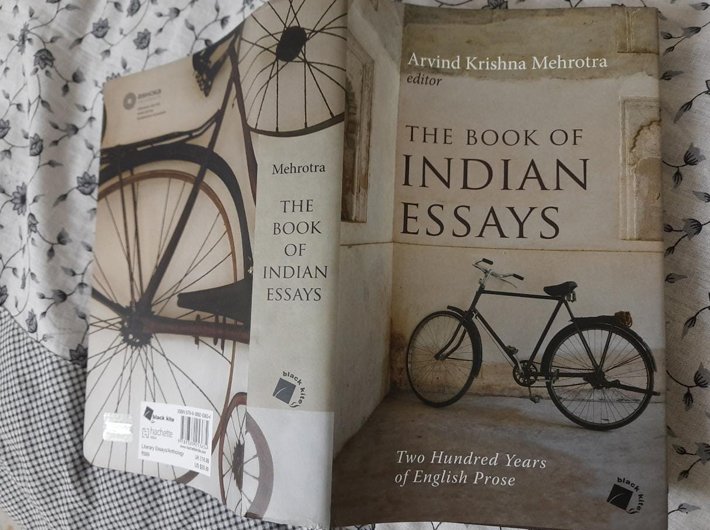‘The Book of Indian Essays’ traces the evolution of the transplanted language, collects old favourites together
The Book of Indian Essays: Two Hundred Years of English Prose
Edited by Arvind Krishna Mehrotra
Black Kite in association with Ashoka University and Hachette India, 446 pages, Rs 699
In the 1990s, the English-language publishing in India was yet to go in the overdrive, and it produced many gems that made a special place in the hearts of many readers. They remain attached to these works affectionately. Possessively too, since many of these works are out of print. Much of these writings do not get talked about today. Some of the authors are no more, so no tweets, no litfest presence, no media interviews.
Sheila Dhar, for example, wrote short pieces about family, cooking, music and so on, with a idiosyncratic wit and sensibility. Two compilations were later put together in a volume, ‘Raga’n Josh: Stories from a Musical Life’ (Permanent Black: 2005). New readers, however, may not have heard the name and remain unfortunate in depriving themselves of a rare pleasure. They can do themselves the favour of sampling her heart-warming prose, and many other now-lesser-known gems in ‘The Book of India Essays: Two Hundred Years of English Prose’, edited by Arvind Krishna Mehrotra (Black Kite in association with Ashoka University and Hachette India: 2020). Apart from Dhar’s ‘Baua’, there are 44 more prose pieces to dip into. Plus, there is a fine introduction by the editor himself.
The collection – the first of its kind, and filling a sore gap – is also the story of evolution of Indian English, the transplantation of a tongue. It begins at the beginning in early nineteenth century, with Derozio. Then comes Tagore, Nehru, Nirad C Chaudhuri, G V Desani and R K Narayan among others – but also Amrita Sher-Gill and F N Souza, as well as Dharma Kumar and Madhur Jaffrey. Some of those better known as public intellectuals or academics or novelists (or all three) – Amitav Ghosh, Mukul Kesavan, Sanjay Subrahmanyam, Ramachandra Guha – have given us memorable essays too, which find place in this volume.
Essay, of course, is the most open-ended literary form: a fine piece of academic writing is also an essay, and so is a well-crafted political speech. The editor has chosen not to include the political prose, though Tagore’s ‘Nation’ makes the cut. Any selection is by definition subjective, yet some reader may complain about non-representation of Arundhati Roy’s non-fiction. The same goes for the work of M K Gandhi, with literary sensibilities properly fine-tuned.
Another restriction is in the subtitle: this is not a book of Indian essays but of Indian-English essays. Indian languages have a robust tradition of essay writing. In Marathi, to take one example, essay is a form as popular as novel or poem, thanks to literary essays by Pu La Deshpande, Kusumagraj, Vinda Karandikar, Manik Godghate (who wrote under the penname ‘Grace’) and others. Their fans can make an argument about these works being on par, if not above, in quality. However, majority of Indian essays in regional languages remain untranslated.
The two pointers in no way take away from the achievement that this treasure trove is – and from the reader’s joy and gratitude for it.
